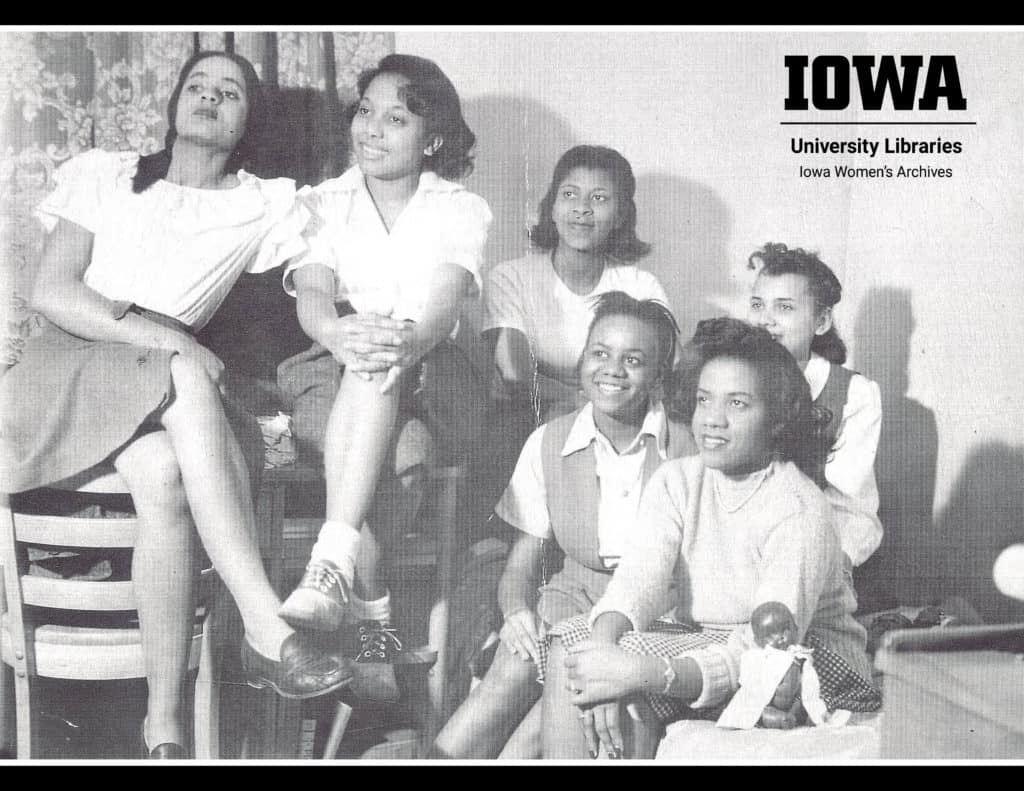This photo features the five undergraduate women who integrated Currier Residence Hall in 1946: Virginia Harper, Esther Walls, Nancy Henry, Gwen Davis, Leanne Howard, and Pat Smith. Their story lives on in the Iowa Women’s Archives and in Currier, where a mural commemorates their achievements at the university and beyond.
We are especially fortunate to have Harper’s (furthest right) niece and namesake, Virginia Eichacker, as a member of our Libraries Advancement Council (LAC). To mark the transition from Black History Month into Women’s History Month, we asked Eichacker about what this image and her aunt’s legacy mean to her.


As I look at the picture of the young women who integrated Currier Hall in 1946, the first thing that strikes me was that they were not looking into the camera but at something that appeared to be in the distance. In that same vein, I also noticed their smiles. It seemed they were smiling almost knowingly, aware that this was a significant moment in time…I know that, whatever my aunt was thinking and smiling about when the photographer took this picture, she did not imagine that 75 years later (2021), it would be part of a mural in a room in Currier Residence Hall—which she had been excluded from the year before.
Following her time at the University of Iowa, my aunt spent the next 50 years working to fight racial prejudice as a member of the Fort Madison branch of the NAACP. She was the first Black woman on the State Board of Public Instruction, where she championed the move for multicultural, nonsexist requirements in Iowa’s education.
If you’re looking for a local history of civil rights activism, the University of Iowa Libraries is a vital resource. The Main Library houses the Iowa Women’s Archives (IWA), filled with the papers and records of many remarkable individuals and organizations devoted to the ongoing struggle for civil rights and social justice. My aunt’s papers, the Virginia Harper Papers, are one such collection.
When approached about serving as a member of the LAC, I was honored to devote my energies toward actively championing the Libraries. And I want to encourage everyone to consider supporting the Libraries and the IWA as we close out Black History Month and start Women’s History Month.
I know that if my aunt could see this post, the same smile on her face in the picture 78 years ago would reappear.
Virginia Eichacker
















